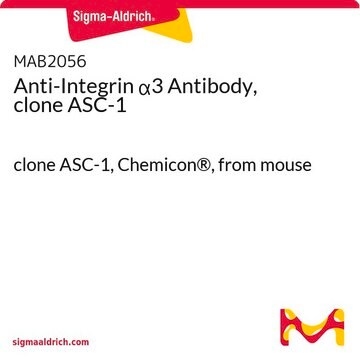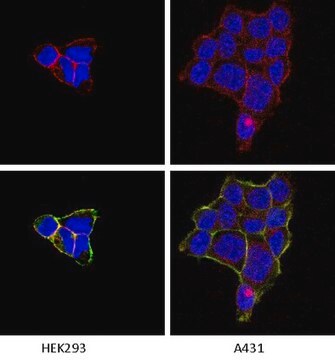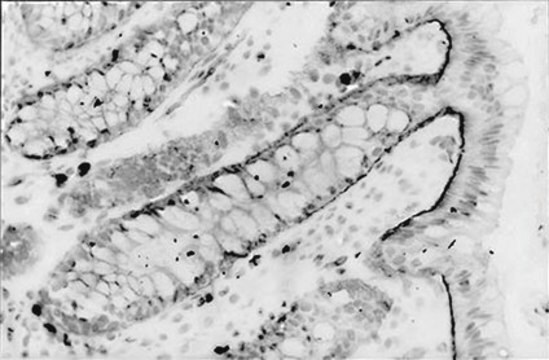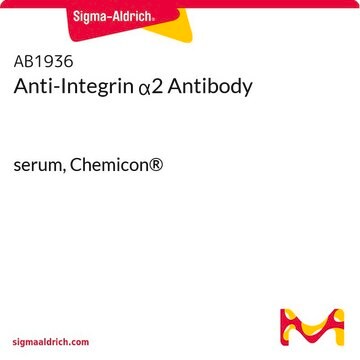MAB1950Z
Anti-Integrin α2 Antibody, clone P1E6, azide free
clone P1E6, Chemicon®, from mouse
Synonym(s):
CD49b, MAB1950
About This Item
Recommended Products
biological source
mouse
Quality Level
antibody form
purified immunoglobulin
antibody product type
primary antibodies
clone
P1E6, monoclonal
species reactivity
human
manufacturer/tradename
Chemicon®
technique(s)
immunocytochemistry: suitable
immunohistochemistry: suitable
isotype
IgG1
suitability
not suitable for immunohistochemistry (Paraffin)
NCBI accession no.
UniProt accession no.
shipped in
wet ice
target post-translational modification
unmodified
Gene Information
human ... ITGA2(3673)
Specificity
Application
Suitable for immunofluorescence using fresh frozen or acetone fixed tissues. Not recommended for traditional formalin fixed paraffin embedded tissues.
Final working dilutions must be determined by end user.
Physical form
Other Notes
Legal Information
Not finding the right product?
Try our Product Selector Tool.
Storage Class Code
12 - Non Combustible Liquids
WGK
WGK 2
Flash Point(F)
Not applicable
Flash Point(C)
Not applicable
Certificates of Analysis (COA)
Search for Certificates of Analysis (COA) by entering the products Lot/Batch Number. Lot and Batch Numbers can be found on a product’s label following the words ‘Lot’ or ‘Batch’.
Already Own This Product?
Find documentation for the products that you have recently purchased in the Document Library.
Our team of scientists has experience in all areas of research including Life Science, Material Science, Chemical Synthesis, Chromatography, Analytical and many others.
Contact Technical Service








